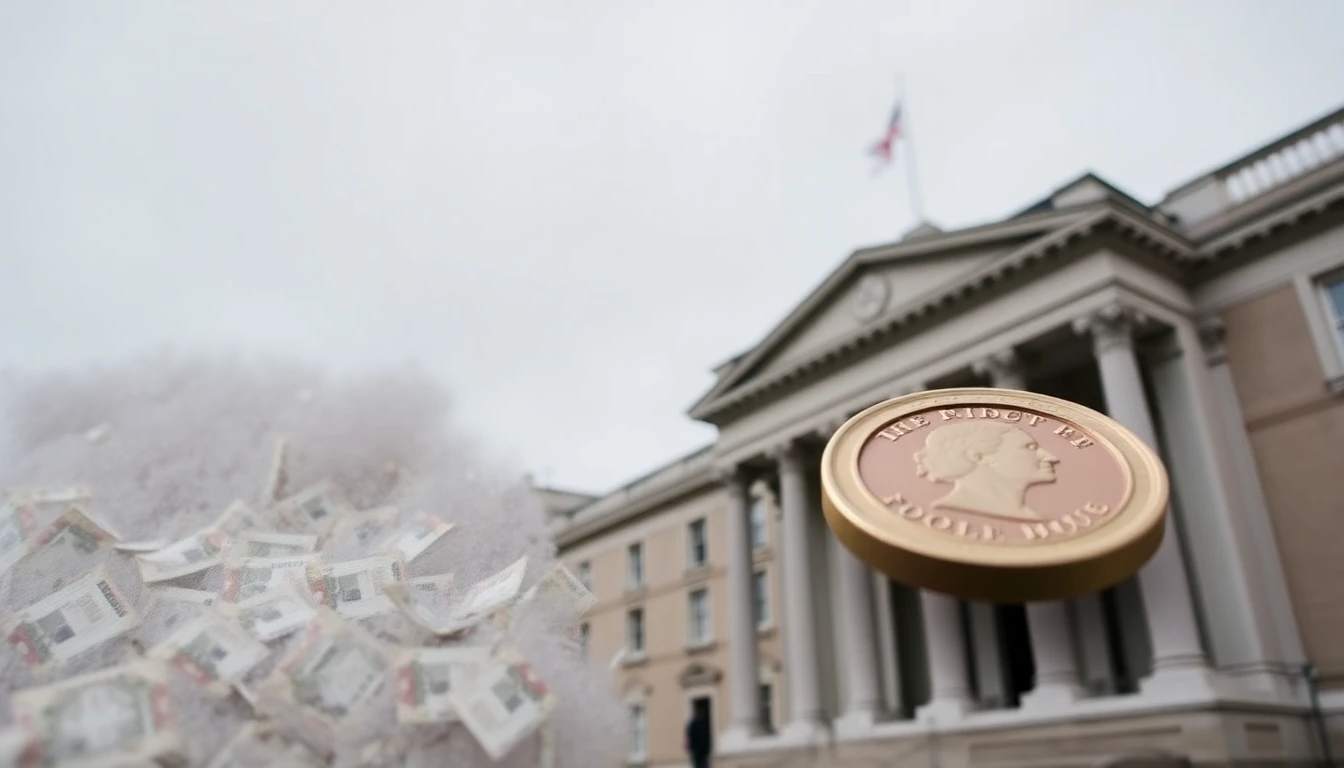
The British pound has experienced a notable decline following the release of disappointing economic growth figures from the United Kingdom. The latest data indicates that the UK economy is struggling to maintain momentum, which has analysts predicting an increasing likelihood of interest rate cuts by the Bank of England in the near future.
According to the Office for National Statistics (ONS), UK GDP grew by a meager 0.1% in the third quarter of 2024 compared to the previous quarter. This figure starkly contrasts the expectations of economists, who had forecasted a more robust recovery. The sluggish growth has raised alarms among financial experts and market participants, leading to a palpable loss of confidence in the pound.
Market reactions were swift, with the pound dropping against major currencies. Analysts noted that this downturn underscores the fragile state of the UK economy, exacerbated by ongoing challenges such as inflationary pressures and geopolitical tensions. The weakening of the pound places additional pressure on households and businesses alike, as import prices may rise, further straining consumer budgets.
In light of these recent developments, discussions around the Bank of England's monetary policy are heating up. Economists are increasingly advocating for interest rate cuts to stimulate growth. The central bank has maintained a cautious approach over recent months, with its last rate increase coming in September 2024. However, with the current economic climate showing increasing signs of distress, a pivot toward easing monetary policy seems more imminent than previously thought.
Financial markets are now pricing in a wave of anticipated rate cuts, with traders reassessing their positions in response to the ONS report. Many are watching closely for upcoming statements from Bank of England officials, who may provide further insight into the central bank’s strategy moving forward.
The glaring signs of economic stagnation have led to a broader debate about the health of the UK economy. Factors such as reduced consumer spending, increased living costs, and a lack of business investment have been cited as contributing elements to this disappointing growth trajectory. Experts are urging investors to remain cautious, as future announcements and adjustments from the Bank of England could significantly impact currency values and market stability.
In conclusion, with the British pound falling sharply amid signs of weak economic performance and the specter of potential rate cuts looming large, the financial landscape is shifting rapidly. It remains crucial for stakeholders to stay informed about further economic indicators and the Bank of England’s forthcoming decisions to navigate these turbulent financial waters.
#PoundSterling #UKEconomy #InterestRates #BankOfEngland #ForexMarket #EconomicGrowth
Author: Rachel Greene
